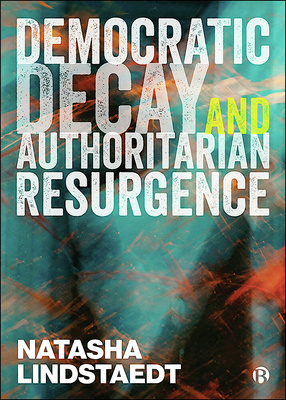In a span of just two months, US presidential candidate Donald Trump has faced yet another assassination attempt. While Trump and his surrogates have, ironically, blamed the Democrats for divisive rhetoric, critics of Trump have pointed out how he has frequently championed violence against his opponents.
Trump has referred to the Democratic candidate Kamala Harris as a ‘fascist’ and a ‘communist’ on numerous occasions. While Trump was president, there were various instances where he called on the police to use violence against protesters, and called his critics ‘vermin’. At his rallies Trump has encouraged his supporters to use force against protesters he deemed to be disruptive. Trump also infamously refused to condemn the white supremacists marching in Charlottesville.
But the most egregious act may have been when Trump railed against the results of the 2020 election, knowingly sold the lie that the election had been rigged and then encouraged his support base to march on the Capitol, leading to the deaths of at least seven people.
While all these instances are examples of how Trump has used divisive rhetoric and shattered norms of non-violence that are critical to democracy, the major issue facing US politics is that there is no longer confidence among the electorate that the election will be free and fair. When the perception arises that elections cannot lead to turnover in power, political violence will also rise.
Almost a third of Americans still believe that the 2020 election was riddled with irregularities. And without any evidence, Trump has sown the seeds of doubt that the 2024 election will be fair. He has now claimed that illegal immigrants will be voting in large numbers, which will rig the results.
By doing so, he has completely delegitimised the electoral process. By stoking divisions and polarisation, he has also amplified the stakes of the outcome. For Trump supporters, Trump’s losing the election is the equivalent to their losing their status in the country. For Trump’s opponents, a Trump win could be the death knell for US democracy. The issue is that when elections become this emotional and the outcome so critical, the propensity for violence increases.
From time to time, political violence has been a stain on US politics, but the type of political violence plaguing US politics today is far different from what it was in the past. In the 1970s, political violence in the US was more likely to be perpetrated by leftist radicals who focused mostly on destroying government buildings and property. Today in the US’s heightened and polarised political environment, political violence is on the rise. But in contrast to the past, people are the targets and most of the violence is being perpetrated by the far right. Reuters has identified 213 cases of political violence between 2021 and 2023, with two-thirds of those cases being physical assaults and confrontations, with 92.8 per cent of the fatalities carried out by the far-right. Trump’s tacit support for white supremacists has normalised extremist beliefs in the mainstream.
In addition to these cultural shifts, the rise in political violence in the US is a sign that its institutions have decayed, with the legislative and judicial institutions becoming increasingly personalised to support Trump’s wishes. The judicial branch just recently gave Trump the go-ahead to do whatever he wants – he essentially has total immunity from prosecution for official acts. In the legislature, although there was significant bi-partisan support for an immigration bill to deal with the crisis at the border, Trump ordered Republicans to torpedo the bill, since its passage would undermine his campaign.
But it is the decay of the US’s electoral processes that will lead to more political violence. Liberal consolidated democracies are less prone to coups and other forms of political violence because when there is a dispute, there are not only norms of tolerance and compromise to resolve disagreements, but there is also the guarantee that people can vote out candidates who fail to serve their interests. There is no need to resort to violence because there will be a turnover in the power of the executive. Holding free and fair elections dissipates the risk of coups because disgruntled individuals can just wait until the next election. This explains why hybrid regimes that hold elections that are highly flawed or unfair are more likely to see political violence. They lack the institutional capacity to mediate conflict over political power.
Trump has made it clear that he will not accept the election results if he loses. Shockingly, 46 per cent of Republicans won’t accept his loss either. This assault on US electoral processes will raise the chances that one of Trump’s opponents may want to take matters into their own hands. When dictators refuse to step down after electoral losses, violence often ensues. And violence begets more violence. The ease with which the first would-be assassin was able to target Trump has and will inspire others.
Casting doubt on the US electoral process, the cornerstone of any democracy has had serious consequences on the quality of US democracy. But just as importantly, it has instigated a series of acts of political violence that raises serious challenges for the peaceful transfer of power in the US.
Natasha Lindstaedt is Professor in the Department of Government at the University of Essex.
 Democratic Decay and Authoritarian Resurgence by Natasha Lindstaedt is available on the Bristol University Press website. Order here for £24.99.
Democratic Decay and Authoritarian Resurgence by Natasha Lindstaedt is available on the Bristol University Press website. Order here for £24.99.
Bristol University Press/Policy Press newsletter subscribers receive a 25% discount – sign up here.
Follow Transforming Society so we can let you know when new articles publish.
The views and opinions expressed on this blog site are solely those of the original blog post authors and other contributors. These views and opinions do not necessarily represent those of the Policy Press and/or any/all contributors to this site.
Image credit: Colin Lloyd via Unsplash


